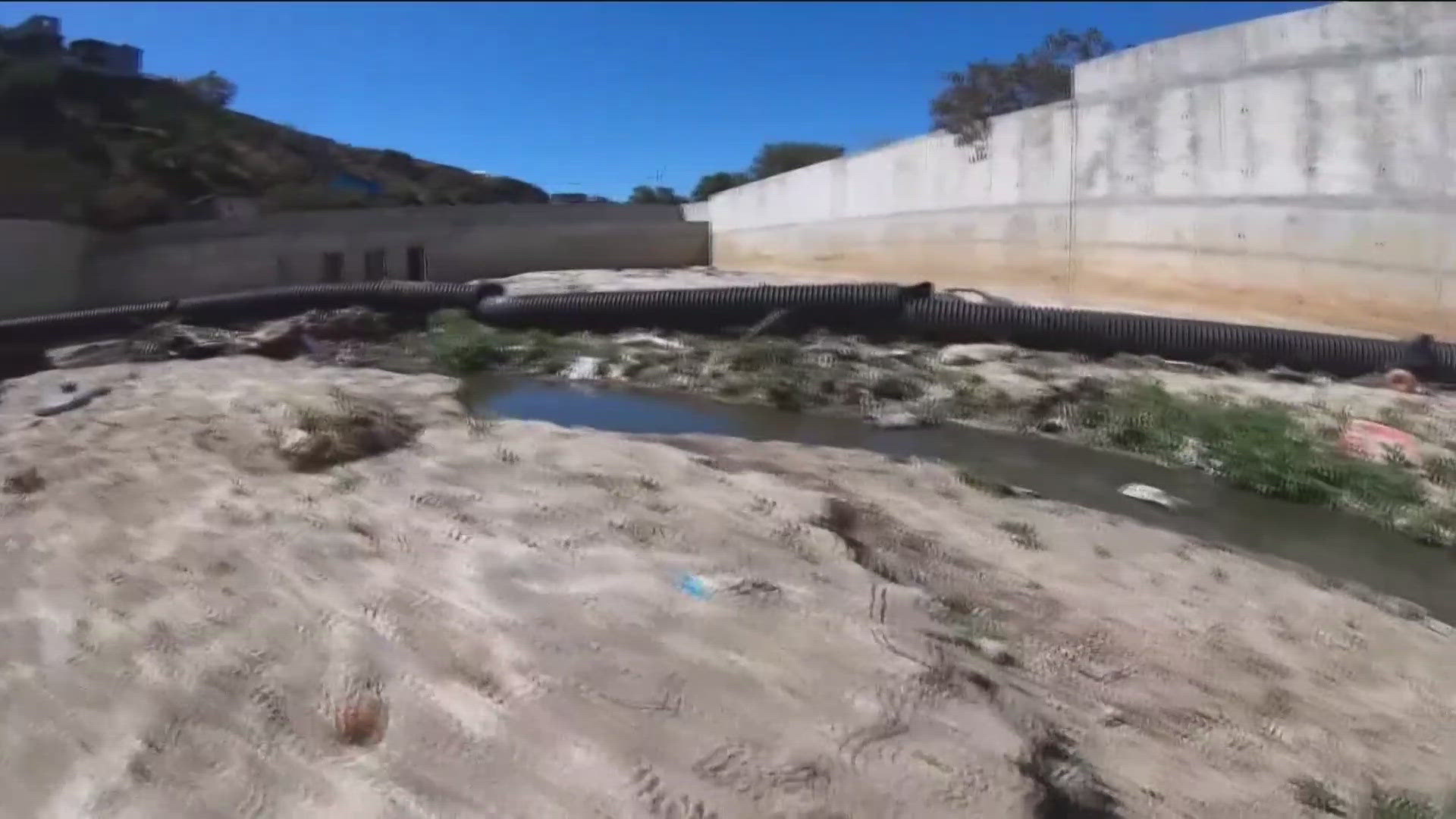CHULA VISTA, Calif. — Chula Vista City Council will consider whether to declare a local state of emergency due to the Tijuana sewage overflow on Tuesday. If approved, it would authorize the city's manager, mayor and councilmembers to work with both local, federal and Mexican authorities to improve conditions in the Tijuana River.
The issue has impacted South Bay residents for decades, but has continued to worsen in recent years.
Untreated sewage, trash and sediment continue to pour into the Tijuana River Valley and impact residents in Imperial Beach, Chula Vista, National City and Coronado on a regular basis. Unsafe water at times has traveled as far north as Pacific Beach and La Jolla.
It's resulted in beach closures and poor air quality. Imperial Beach shorelines were closed for more than 1,000 days. Residents rejoiced when beaches reopened in late September, but it was short-lived.
South Bay doctors have also said there's an impact on resident's health.
So have researchers from San Diego State and the University of San Diego -- but the county contested the scientists' findings.
According to the resolution that will be presented Tuesday, city leaders say the "persistent impact" of the cross-border contamination is "unhealthy for the residents of our region."
"The presence of pollution is creating unsafe conditions for residents and visitors who live, work or recreate in the Tijuana River Valley and may come into contact with contaminated water," the resolution reads.
Chula Vista is one of the many cities in San Diego County fighting for change. Imperial Beach Mayor Paloma Aguirre has consistently advocated for Imperial Beach residents and asked California Governor Gavin Newsom to declare a national emergency.
San Diego City Council also voted in favor of urging the federal government to declare a national state of emergency in October.
Federal agencies have their eye on the crisis.
In October, the Center for Disease Control and Prevention went to 210 South Bay homes to better understand the public health impact the cross-border contamination has on neighboring residents.
The CDC's survey results are expected to drop later this year. Depending on its findings, the data could help both city and county leaders advocate for federal funding to fix the broken sewage infrastructure that's responsible for the overflow.
Chula Vista will vote on whether to approve the state of emergency at Tuesday's 5 p.m. City Council meeting.

